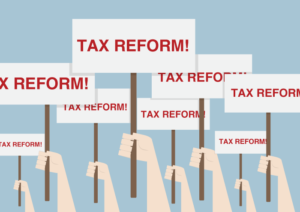FBAR Penalties Could Be Lessened Under New IRS Guidelines
According to the IRS, “if you have a financial interest in or signature authority over a foreign financial account, including a bank account, brokerage account, mutual fund, trust, or other type of foreign financial account, exceeding certain thresholds, the Bank Secrecy Act may require you to report the account yearly to the Department of Treasury by electronically filing a Financial Crimes Enforcement Network (FinCEN) 114, Report of Foreign Bank and Financial Accounts (FBAR).”
In other words, anyone who has money in a foreign bank account that exceeds $10,000 at any time during a given year will need to report that income to the IRS via an FBAR. However, recently, the IRS issued some new guidance regarding the penalties for those who don’t file an FBAR. According to reports, the IRS released a statement that noted: “For each year for which it is determined that there was a willful violation, examiners must fully develop and adequately document in the examination work papers their analysis regarding willfulness.”
For any case that involves willful violation for several years, it is up to the examiner to recommend the penalty length for each year the violation was determined to be willful. The IRS stated that typically the total penalty for the combined years under examination would not exceed ‘50 percent of the highest aggregate balance of all unreported foreign financial accounts during the years under examination.”
Meantime, an examiner can recommend more or less than the 50 percent threshold, but the total penalty cannot “exceed 100 percent of the highest aggregate balance.” There are obviously many possible scenarios and each case will be treated separately on its own merits and circumstances. The bottom line is you should still report your FBARs each year and report them on time. If you need help planning for and filing your FBAR then contact GROCO today at 1-877-CPA-2006, or by clicking here.
The Fight for Tax Reform Will Be Long and Arduous
Is it starting to feel like the process to simply put up a new stop sign in the Nation’s Capitol would take an act of Congress? These days nothing is simple in Washington and when it comes to tax reform the battle will be anything but easy. When President Trump took office it was widely…
IRS Hitting Estimated Tax Filers With More Penalties
The IRS plays no favorites when it comes to taxpayers missing payments or not paying enough. However, those who pay their income tax via quarterly estimated payments had better pay particular attention because lately the IRS has been coming down hard on these individuals with much more frequency. According to recent IRS data, the number…
Look Who the IRS Is Adding to its Staff
Look Who the IRS Is Adding to its Staff For those who believe in giving people a second chance this will be good news. For those who feel the IRS is already rife with crooked employees that will stop at nothing to take more of taxpayers’ money, this news will leave a bad taste in…
Are Up to Date on Your Taxes for Your Side Job?
Are you up to date on your taxes for your side job? The saying goes: “Don’t quit your day job.” Millions of Americans take that advice to heart, but that doesn’t mean they aren’t investigating other avenues for making additional money. There are all kinds of side jobs, from small hobbies to night jobs, or…




